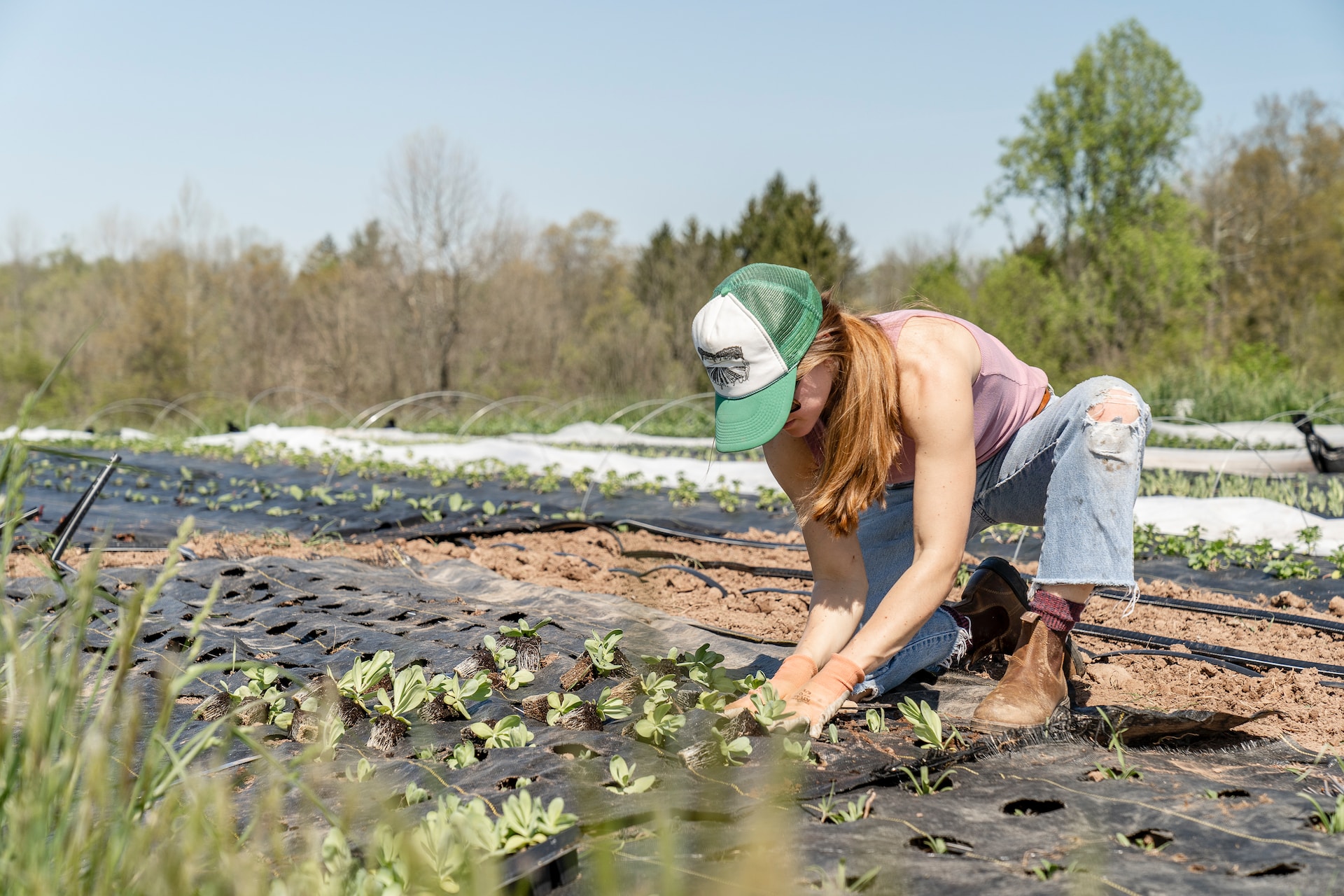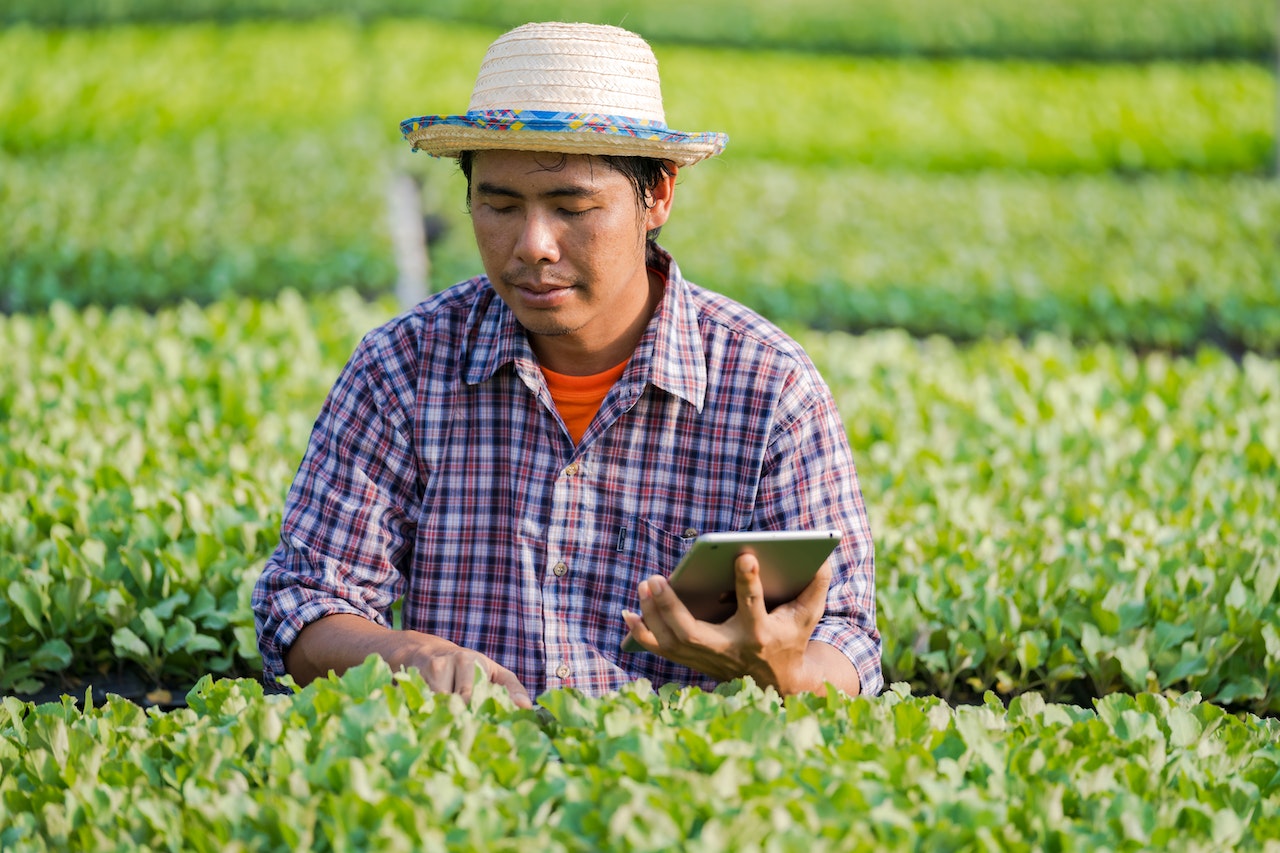Sustainable Investing in African Agriculture: Feeding the Continent’s Future.
African agriculture is a rich source of sustainable investment in the continent that not only promises financial gains but also solves important global issues. We will examine the enormous possibilities for sustainable agriculture investments across the continent in this blog post from the Centre for African Development & Investment (CADI).
The critical need to address food security and agricultural innovation in African countries, along with programs that support sustainable farming methods and their potential for investment will be explored in this blog.
The African Agriculture Imperative
Africa’s agriculture is more than just a business; it’s a vital industry that keeps the continent’s economies afloat, feeds its expanding population, and holds the key to a bright future. The African Agriculture Imperative acknowledges the crucial role that agriculture plays in the development of the continent, having an impact on the lives of more than 60% of people, the majority of whom depend on farming for their livelihoods.
African agriculture has a crucial role in providing global food security for the expanding human population. The continent’s expansive and fertile fields have the capacity to feed the entire planet, dramatically increasing food output. However, Africa has a number of difficulties, including post-harvest losses and disjointed value chains, in addition to climate change and restricted access to modern farming techniques.
It is not only financially advantageous but also morally necessary to invest in African agriculture. More than a quarter of the world’s population suffers from malnutrition, and by 2050, food demand on the continent is predicted to triple. In order to meet this growing demand as well as to ensure that the expansion is equitable, environmentally responsible, and resistant to the difficulties posed by a changing climate, sustainable agriculture investments are crucial.
The African Agriculture Imperative emphasizes how urgent it is to transform the agriculture industry on the continent. It is a call to action for all stakeholders, including investors, governments, and governments, to promote sustainable agricultural practices, encourage innovation, and assist the millions of smallholder farmers who form the foundation of African agriculture.
Sustainable Agriculture: A Necessity and Opportunity
For Africa, sustainable agriculture is both a necessity and a chance. In order to secure food security and environmental stewardship while the globe struggles with issues like climate change, soil degradation, and a rising global population, sustainable agriculture is becoming more and more important. Adopting sustainable farming practices is not just a choice; it is a crucial survival tactic in Africa, where many nations are particularly exposed to the effects of climate change.
The ability of sustainable agriculture to lessen the negative consequences of climate change highlights the need for it in Africa. Building resilient farming systems that can resist unpredictable weather patterns and protracted droughts is made possible by sustainable practices including conservation agriculture, agroforestry, and precision farming. Furthermore, sustainable agriculture helps combat climate change by protecting important ecosystems, preserving biodiversity, and lowering the carbon footprint of food production.
Sustainable agriculture in Africa presents a sizable potential as well as a means of addressing problems. The continent’s large arable land, variety of agroecological zones, and young population provide an ideal environment for sustainable agricultural innovation and expansion. Higher yields, better livelihoods for smallholder farmers, increased agricultural exports, and improved food security are all promises of investments in sustainable agriculture.
In conclusion, sustainable agriculture investment in Africa presents both a chance for Africa to realize its agricultural potential and spur economic growth as well as a critical component of addressing urgent global concerns. Adopting sustainable farming methods would help the continent’s inhabitants achieve affluence and resilience.
The Investment Landscape
The agricultural investment environment in Africa is changing and presents a potential environment for those looking for possibilities that support sustainable development objectives. A wide range of investors, including impact investors, private equity firms, and development finance institutions, have been attracted by the growing acknowledgment of agriculture’s crucial role in food security, economic growth, and environmental sustainability.
Growing interest in impact investing, where financial rewards are sought coupled with verifiable social and environmental benefits, is one of the noticeable changes in the investment landscape. With investments in eco-friendly practices, value chain enhancements, and rural development having the potential to both increase profitability and have a beneficial social impact, sustainable agriculture is a natural fit for this strategy.
Additionally, private equity firms are very interested in African agriculture. They are aware of the industry’s unrealized potential and scalability. These enterprises frequently provide growth finance, managerial know-how, and access to international markets to agribusinesses, encouraging innovation and value addition within the industry.
International organizations and development finance institutions are aggressively pushing investments in sustainable agriculture in Africa. They support investments that prioritize environmental sustainability, smallholder empowerment, and inclusive growth by offering vital funding, technical assistance, and policy support.
The Investment Landscape
African agriculture’s investment environment is changing significantly, drawing a wide range of investors eager to tap into the continent’s enormous agri-food potential. Increased interest and financial activity have been sparked by the growing understanding of how important agriculture is to environmental sustainability, economic growth, and food security.
Impact investors have a significant impact on this changing market. They look for business possibilities that have quantifiable social and environmental benefits in addition to financial gains. This strategy is compatible with sustainable agriculture because it can result in improved smallholder farmer livelihoods, higher yields, and less environmental damage.
As a result of their awareness of the unrealized potential in African agriculture, private equity firms have also entered the picture. They enable the expansion and modernization of agribusinesses across the continent by offering growth financing, operational know-how, and access to international markets.

Investment in Africa in sustainable agriculture is aggressively encouraged by multilateral organizations and development finance institutions. In order to stimulate investments that place a high priority on environmental sustainability, smallholder empowerment, and inclusive growth, they provide vital funding, technical assistance, and policy support.
Despite the increased demand, problems like insufficient infrastructure, problems with land tenure, and restrictions on market access continue. However, these difficulties offer chances for investors to get involved in worthwhile initiatives that solve pressing problems and earn money.
Successful Sustainable Agriculture Ventures
The success stories of sustainable agriculture projects across Africa demonstrate the sector’s transformative potential.
- Twiga Foods (Kenya)
By establishing connections between smallholder farmers and retailers via a cutting-edge mobile network, Twiga Foods has revolutionized the food supply chain. By streamlining delivery, this Kenyan firm lowers food waste while maintaining fair rates for farmers. Twiga Foods has experienced significant growth thanks to investments, which have also helped countless small farmers better their standard of living.
- GreenTec Capital (Various African Countries):
As an impact investment firm, GreenTec Capital has played a significant role in assisting African agribusinesses. Businesses like Farmcrowdy (Nigeria) and Boreal Light (Tanzania), which concentrate on crowd-funded farming and sustainable water solutions, respectively, have grown as a result of their investments. These endeavors have a significant impact on both society and the environment.
- Zambeef (Zambia):
In Zambia, Zambeef is a vertically integrated enterprise that has proven the viability of extensive, sustainable farming. With investments in cutting-edge technology and environmentally friendly practices, Zambeef has increased food production while serving as an example of how responsible agriculture can spur economic growth.
- M-Farm (Kenya):
M-Farm uses technology to provide market information to smallholder farmers, thereby lowering inefficiencies and raising their income. Investments in M-Farm have made it possible for this digital platform to grow, helping Kenyan farmers and enhancing food distribution.
These case studies demonstrate how wise financial investments in sustainable agriculture projects may address important problems including food security, poverty reduction, and environmental sustainability. They serve as an example of the beneficial social impact and revolutionary potential of investments in sustainable agriculture in Africa.
Initiatives and Innovations
A wide range of programs and technologies that support eco-friendly practices and empower smallholder farmers have enriched Africa’s sustainable agricultural landscape:
- Precision Agriculture: To maximize resource utilization, precision agriculture innovations utilize technology, such as drones and data analytics. Businesses like Apollo Agriculture (Kenya) give smallholder farmers specialized farming advice based on data analysis, increasing yields and income.
- A wave of agri-tech startups is transforming African agriculture. Digital platforms are used by businesses like Farmcrowdy (Nigeria) and Twiga Foods (Kenya) to connect farmers with markets, improve transparency, and cut post-harvest losses.
- Initiatives to improve soil health: Businesses like the African Soil Information Service (AfSIS) are mapping soil characteristics all throughout the continent. With the use of this knowledge, farmers can manage their soils more effectively, increasing agricultural yield while preserving soil health.
- Climate-Smart Agriculture: To address the negative consequences of climate change, programs like the Climate Smart Agriculture (CSA) approach integrate climate-resilient practices, promoting drought-resistant crops, effective irrigation, and sustainable land management.
- Conservation Farming: Institutions like the International Maize and Wheat Improvement Centre (CIMMYT) are promoting conservation farming practices such as crop rotation and no-till farming. These techniques lessen erosion while enhancing soil fertility and water retention.
- Sustainable Supply Chains: Projects such as the Sustainable Agriculture Initiative Platform (SAI Platform) collaborate with companies to create and put into practice sustainable sourcing strategies, ensuring that agricultural supply chains give environmental and social responsibility first priority.
Investment Prospects: Why Invest in African Agriculture
Aside from being financially lucrative, investing in African agriculture also corresponds with a wider range of advantages that make it an appealing option:
1. Growing Food consumption: By 2050, Africa’s population is expected to quadruple, leading to a marked rise in food consumption. Investment in agriculture can benefit from this growing sector and help ensure the safety of the world’s food supply.
2. Africa has large areas of untapped arable land that are yet underutilized. By utilizing technology and environmentally friendly practices, investors may realize this potential and increase productivity while protecting ecosystems.
3. Sustainability and Impact: Investments in sustainable agriculture provide both financial rewards and advantageous societal and environmental effects. The enhancement of rural livelihoods, biodiversity preservation, and climate resilience are all supported by these efforts.
4. Youthful Workforce: Africa has a demographic advantage in terms of a dynamic workforce thanks to a growing young population. Investments in agriculture can promote economic stability, lower youth unemployment, and create jobs.
5. Innovation and Technology: A technological revolution is taking place in Africa. Investments in digital agricultural projects and AgriTech businesses have the potential to bring about disruptive breakthroughs that boost productivity and profitability.
6. The different climates and ecosystems of Africa enable a wide range of crops and farming techniques. Different agroecological Zones. Risks can be reduced by diversifying portfolios among several commodities and geographical areas.
7. Effective Partnerships: Working together with governments, NGOs, and development organizations offers chances to leverage more funding and assistance, increasing the likelihood that investments will be fruitful and have an impact.
The Role of CADI in Facilitating Sustainable Agri-Investments

On the African continent, the Centre for African Development & Investment (CADI) is at the forefront of promoting investments in sustainable agriculture. CADI is deeply committed to advancing ethical and significant investment practices, and it is a key player in matching investors with opportunities that support sustainable development objectives.
The area of competence for CADI is finding and selecting African agricultural investment opportunities that prioritize long-term profitability, social benefit, and environmental sustainability. To make sure that the projects it proposes to investors are thoroughly investigated, sound financially, and compliant with international best practices in sustainable agriculture, the organization engages in rigorous due diligence.
Additionally, CADI provides investors with crucial market knowledge and technical know-how that aids in navigating the intricacies of African agricultural landscapes. CADI equips investors to make wise decisions and maximize the benefits of their investments by offering in-depth knowledge and advice.
CADI acts as a link between investors and sustainable agriculture projects, fostering deep alliances that spur innovation and change in the industry. CADI promotes collaboration by hosting networking events, investment forums, and matchmaking sessions to make sure that investments are strategically in line with the objectives of both investors and projects.
Conclusion
Agriculture investment in Africa is a sustainable investment that not only supports global sustainability goals but also offers potential financial benefits. These investments have the ability to alter Africa’s agriculture industry, improve communities, and feed the continent’s future through solving issues with food security and encouraging agricultural innovation.
Explore with us how your investment may be a catalyst for change, guaranteeing a more successful and sustainable future for Africa and the rest of the globe, as you go with us on this voyage for positive impact. Get in touch with us for more information, and let’s invest in the future!





